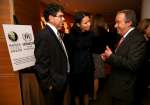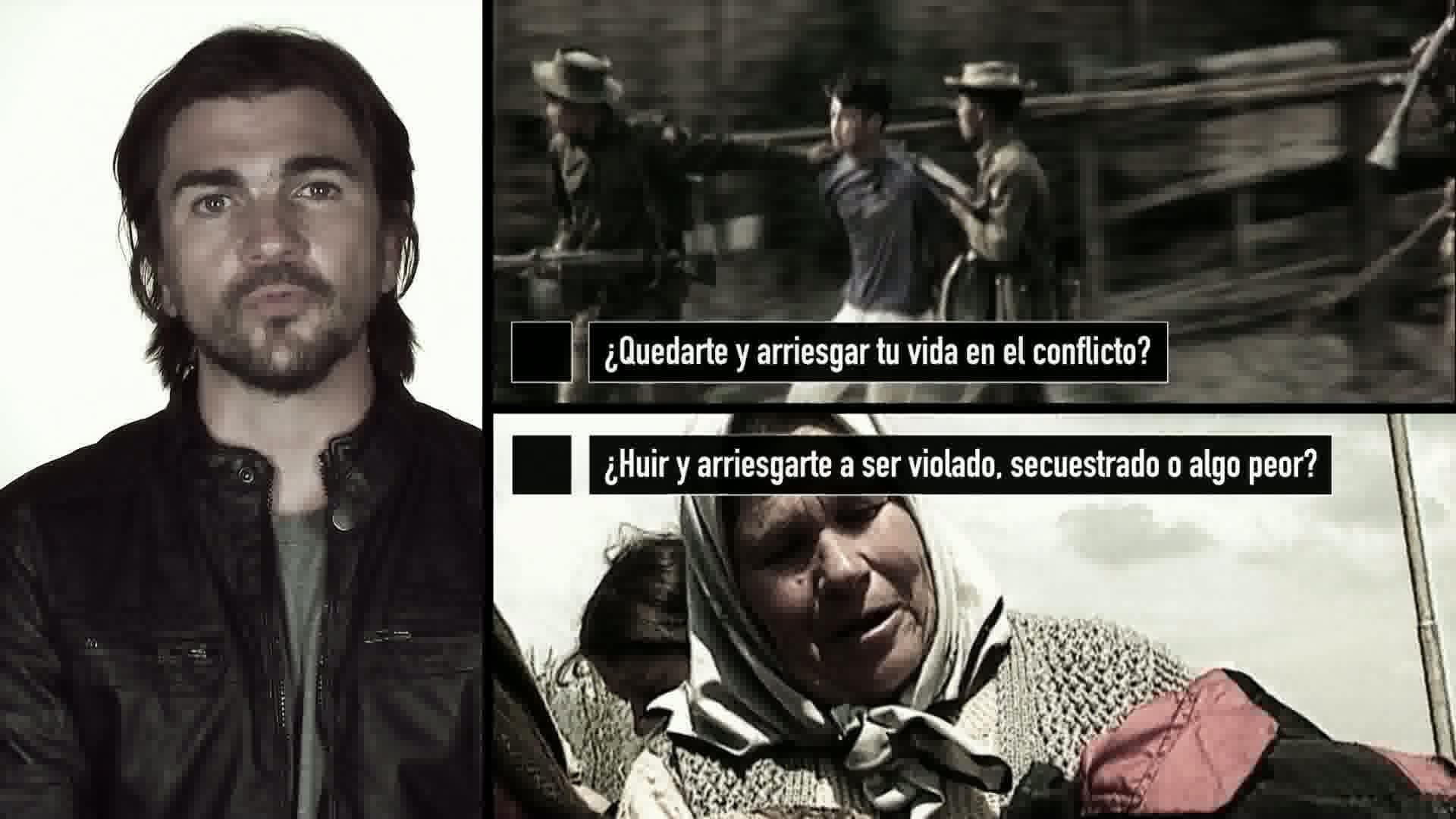- Text size
 |
|  |
|  |
| 
- Français
Honduran teenager flees homophobia and finds a new life in Mexico
Telling the Human Story, 4 August 2009
TAPACHULA, Mexico, August 4 (UNHCR) – From an early age, Antonio* and those around him knew he was different. "My family, especially my dad, noticed that I acted differently, and he always used to tell me that what I did was wrong . . . that I was born a boy and I had to act accordingly," the Honduran teenager recalled.
His father used to beat him with his fists, a stick or a belt, or even stone him. "He also used to insult and beat my mother, blaming her for giving birth to a boy who was happier to hang out with the girls of the family, play with dolls, cook and stay home."
In the conservative rural backwater where he grew up, homosexuals were regarded as abnormal and subject to abuse. Antonio's life became so unbearable, that he finally decided to flee overseas to escape his persecutors.
After a couple of false starts, his journey brought him last October to Tapachula, a city located on southern Mexico's border with Guatemala. Tapachula is also on a major mixed migration route from South America to the United States.
"There were eight of us trying to sneak past the checkpoint when the immigration authorities arrived," the 16-year-old told staff from UNHCR, who monitor the border in a search for refugees and asylum seekers. "They all ran but me."
Antonio applied for asylum and has since been given refugee status. Cases like his are rare, but equally worthy of UNHCR protection as more traditional ones. Most refugees and asylum seekers flee conflict or persecution, while people like his seven companions at the border are economic migrants escaping poverty.
The Honduran youth has gone through a lot of pain in his short life. From a very young age, he suffered from physical and sexual abuse, social exclusion and discrimination by different members of his family and community. When Antonio turned 14, he left home and dropped out of school, where he had suffered discrimination and abuse.
Antonio applied for a job in a fashion boutique. "Since I was afraid of being rejected, I tried to conceal my homosexuality, controlling my movements and the way I talk, but eventually people could tell and when the owner learned about my sexual orientation she fired me," he said, adding: "She was a very religious person and to her I was a sinner."
He moved to a different town and found another job in a clothing store, but the nightmare soon began again. When his new employer realized Antonio was gay, he verbally abused him while continuing to employ him. Antonio said he began fearing for his life because his boss always carried a gun.
Things got worse. "If I did something wrong, he used to slap me and he even asked other employees to beat me. He often threatened to kill me or my family and friends if I dared to leave my job or denounce him."
In the end, Antonio plucked up the courage to leave Honduras with his friend Enrique and try to reach the United States, where homosexuals are more widely accepted. "But we were detained and deported from Mexico. On our second attempt, we got into the US, but we were caught and sent back to Honduras."
The third time, Antonio reached Tapachula, where he was detained. He was sent to a migration holding centre, where he met a child protection officer from the National Migration Institute. "I told her what I had gone through and that I was afraid of going back to Honduras. I learned that my old employer had come to my house and told my family that as soon as I got back there he was going to kill me."
Antonio's case was referred to the Mexican Commission of Aid to Refugees (COMAR). He applied for asylum and was granted refugee status on the grounds of his membership of a particular social group.
"I wish my mother or my oldest sister could come to live with me", said Antonio, who will have to stay in a shelter for minors until he is 18. Nevertheless, he is very optimistic about the future and has plans. He has enrolled in a beautician's course with the help of COMAR.
"If God allows it, I want to have my very own beauty saloon. I also want to study English and obtain a language degree. I know I am going to make it, because everybody I know says that I'm a very quick learner."
And he is. In Mexico, he has learned how to embroider and he's selling his work to save some money and send it to his mother. "I want to help my mother so she no longer suffers. She is the one who supports the whole family," he said, adding: "I want to share my story to let other people in my situation know that they should not be afraid . . . seek help and you can leave all that behind just like I did."
* Name changed for protection reasons
By Mariana Echandi in Tapachula, Mexico














